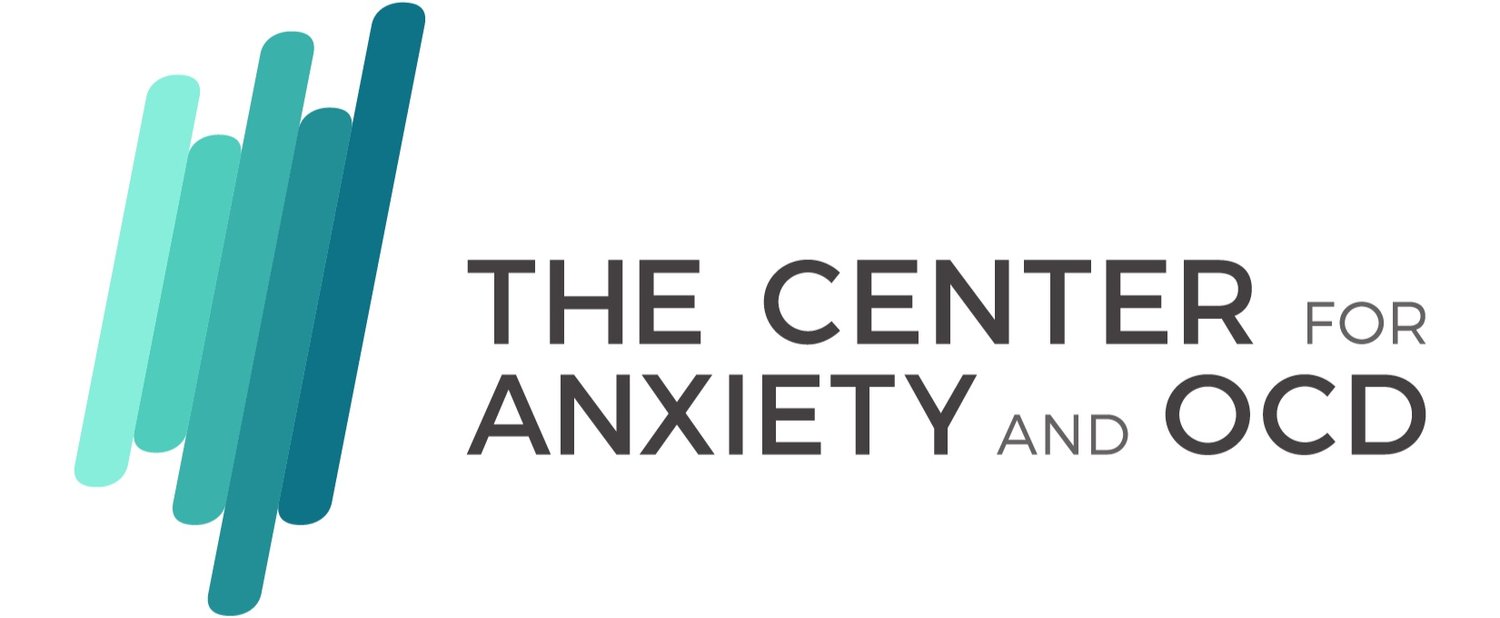
TREATMENT
Cognitive Behavioral Therapy
(CBT)
Cognitive behavioral therapy (CBT) is widely recognized as the most effective treatment for anxiety disorders, with countless scientific studies showing its benefits for everything from generalized anxiety disorder (GAD) to panic disorder, to OCD. Some studies put the efficacy of CBT close to 80%, even without the additional use of psychiatric medication or adjunctive therapies of any kind. Even more excitingly, these results have been proven to last months and even years after a course of treatment. When utilized in the treatment of anxiety disorders, CBT works to identify and challenge the irrational fears that fuel anxiety and increase rigidity in our lives and our relationships. By working to challenge these irrational beliefs and gently dismantle faulty thinking patterns, CBT helps us see our thoughts and feelings through a balanced lens, creating much needed space from intrusive thoughts and feelings. From this more balanced perspective, we are able to choose our reactions and decide where our focus and attention will go- the ultimate path to freedom.
Exposure with Response Prevention
(ERP)
Exposure with response prevention (ERP) is the second component of the gold standard treatment protocol for anxiety and OCD. ERP is a therapeutic technique which involves exposure to a feared scenario while refraining from engaging in compulsive or neutralizing behaviors. By actively facing our fears, we begin to teach our mind that these terrifying hypotheticals are far less likely to occur than our brain says they are, and that by tolerating anxiety without escaping it, we come to see that over time, anxiety decreases all on its own. With the guidance of an experienced exposure therapist, clients create a hierarchy of feared scenarios and begin the highly beneficial task of working through exposures. ERP can be done in the office, at home through the use of teletherapy, or in an agreed upon outside location. Always done with the utmost respect for the client and their comfort level, exposure work is meant to be challenging, but not overwhelming to the point of feeling flooded or overwhelmed.
Acceptance and Commitment Therapy
(ACT)
Borrowing the wisdom of Eastern traditions and mixed with behavioral strategies, acceptance and commitment therapy (ACT) teaches us how to accept the present moment and all that it entails, including unwanted thoughts, feelings and sensations, without judgement or an intention to change what is. Not only limited to meditation, mindfulness and ACT can help us respond better to the pain of having an anxiety disorder by re-orienting our relationship to discomfort. Accepting what we cannot change is not the same as agreeing with it, liking it, or enabling it. Rather, ACT offers an approach to anxiety management that allows us to accept ourselves and our thoughts exactly as they are while choosing to place our focus on more meaningful directions and helpful actions.

SERVICES
Individual Psychotherapy
One-on-one counseling at The Center, which is centrally located in Irvine, California. Free parking and easy access to major freeways make this an excellent option for anyone hoping to work in person with their clinician.
Online Psychotherapy
Online Therapy, or "teletherapy" is a convenient option for those who cannot make it to the physical offices due a variety of reasons, including debilitating anxiety, distance (including international clients), or for those who prefer online therapy due to time or health constraints. Teletherapy offers the option of having your full counseling session without ever having to leave your home, or your country. Utilizing a fully encrypted Skype-like platform, teletherapy offers comparable therapeutic outcomes as in-person counseling, minus the drive.
Intensive Outpatient PsychotherapY
The ideal option for Individuals looking for a more intensive treatment plan, including multiple hours/day, multiple days/week and out of office exposures. Intensive treatment is well suited to those who are interested in focusing on their recovery intensely for a shorter amount of time, or for those travelling to our offices from across the country or abroad. Often times the choice for students on break or travelers with limited availability, intensive treatment can make a big impact fast. The appropriateness of this treatment strategy and time span will be determined with your therapist after an initial consultation, taking into account your unique therapeutic needs as well as any time restrictions you may have.
Group Therapy
CAOCD proudly offers three low-fee OCD support groups, both virtual and in person, at various times throughout the week to accommodate our clients busy lives. Our groups utilize cognitive behavioral therapy (CBT), acceptance and commitment therapy (ACT), and exposure with response prevention (ERP) and have many of the same benefits as 1:1 treatment. Join our skilled clinicians as they guide a like-minded cohort through transformative recovery process, together.
You have the right to receive a “Good Faith Estimate” explaining how much your medical care will cost.
Under the law, health care providers need to give patients who don’t have insurance or who are not using insurance an estimate of the bill for medical items and services. You have the right to receive a Good Faith Estimate for the total expected cost of any non-emergency items or services. This includes related costs like medical tests, prescription drugs, equipment, and hospital fees. Make sure your health care provider gives you a Good Faith Estimate in writing at least 1 business day before your medical service or item.
You can also ask your health care provider, and any other provider you choose, for a Good Faith Estimate before you schedule an item or service. If you receive a bill that is at least $400 more than your Good Faith Estimate, you can dispute the bill. Make sure to save a copy or picture of your Good Faith Estimate.
For questions or more information about your right to a Good Faith Estimate, visit www.cms.gov/nosurprises
